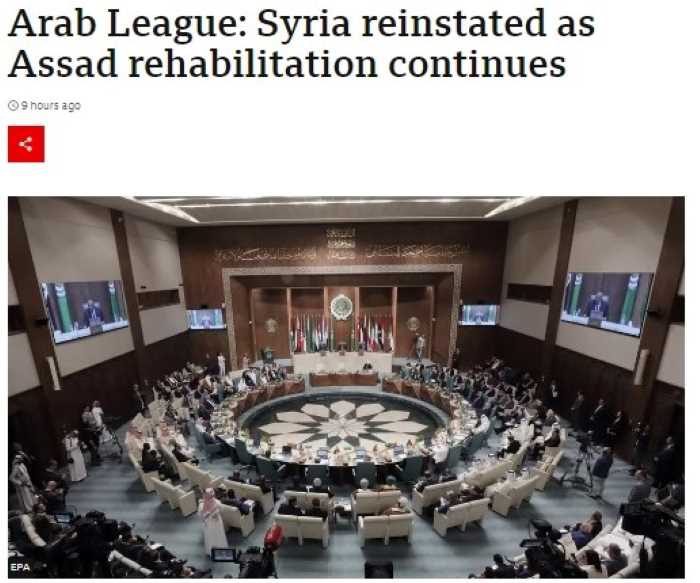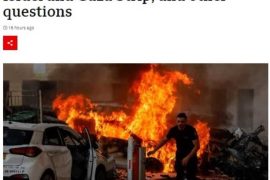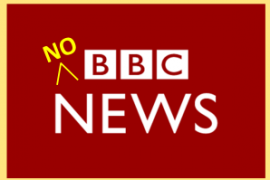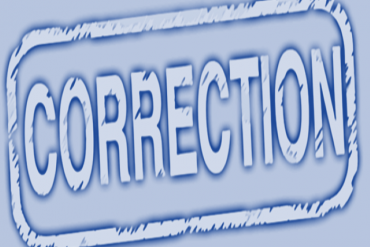On the evening of May 7th a report headlined “Arab League: Syria reinstated as Assad rehabilitation continues” appeared on the BBC News website.
Credited to Kathryn Armstrong, that report includes the following: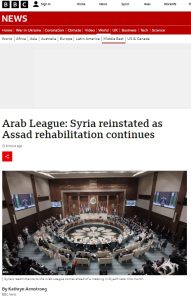
“Foreign ministers from 13 of the 22-nation group’s members were present at the meting in Cairo where the decision to readmit Syria was taken.
They stressed the need to end Syria’s civil war and the resulting refugee and drug smuggling crises.
Growing poverty and lack of job opportunities saw many turn to the drug trade, the BBC reported last year..”
The link in that last paragraph leads to a report by Yolande Knell from April 2022 in which BBC audiences were told that:
“At the height of the conflict in Syria, smugglers and militant groups took advantage to supply Captagon – which is often laced with caffeine – to fighters, to boost their courage and help them stay alert on the frontlines.
With few legitimate work opportunities and growing poverty, many ordinary Syrians became involved in the drugs trade.”
However Knell’s report went on to provide information which is absent from Armstrong’s portrayal of the topic:
“Although there have been public denials from Syrian President Bashar al-Assad’s government, reports have linked powerful figures in business and the military to the manufacturing and distribution of Captagon.
“The areas in which Captagon production is most pronounced are those controlled by the Assad regime and close familial relations of the regime,” says Ian Larson, a Syria analyst for the Center for Operational Analysis and Research (COAR), a Cyprus-based consultancy.”
Given that at the end of March 2023 the US Treasury announced sanctions on members of the Assad family due to their involvement in the production and trafficking of Captagon, information concerning the involvement of the clan of the president of the country newly reinstated by the Arab League is obviously relevant to the topic of Armstrong’s report.
As reported by the FDD at the time those sanctions were imposed:
“Treasury’s explanation of the new sanctions provided much greater detail about Syrian narco-trafficking operations than previous U.S. government statements. Confirming media reports, Treasury identified Maher al-Assad, the brother of the president and commander of the army’s Fourth Division, as the pivotal figure in the trafficking network. The U.S. government imposed sanctions on Maher during the first months of the Syrian civil war in 2011 and sanctioned the Fourth Division as an entity three years ago.
Tuesday’s targets include two cousins of the president. The first is Samer Kamel al-Assad, who “oversees key Captagon production facilities in regime-controlled Latakia, Syria, in coordination with the Fourth Division and certain associates of Hizballah,” according to Treasury. His factory produced the 84 million Captagon pills — worth more than $1.2 billion — that Italian authorities confiscated at the port of Salerno in 2020, Treasury noted. The other cousin is Wassim Badi al-Assad, whom Treasury identified as a key figure in regional trafficking partnerships.”
Unsurprisingly, given that the BBC has largely avoided the topic in recent years, information about Hizballah’s involvement in the Syrian drug trade does not appear at all in either the 2022 report by Yolande Knell or this latest article by Armstrong.
One of the countries severely affected by Syrian drug trafficking, which is a source of income for both the Assad regime and the terrorist organisation Hizballah, is Jordan. On May 5th CNN interviewed the Jordanian foreign minister, Ayman al-Safadi, about a meeting that had taken place several days earlier.
“The foreign ministers of Syria, Egypt, Iraq, Saudi Arabia and Jordan met in the Jordanian capital Amman on Monday to discuss how to normalize ties with Syria. According to a statement issued after the meeting, Syria has agreed to help end drug trafficking across its borders with Iraq and Jordan.
Safadi told CNN many people have suffered consequences due to the Syrian crisis, including Jordan, and will make sure to do whatever it takes to mitigate any threat to Jordan’s security.
“We are not taking the threat of drug smuggling lightly. If we do not see effective measures to curb that threat, we will do what it takes to counter that threat, including taking military action inside Syria to eliminate this extremely dangerous threat not just in Jordan, but through Jordan to the Gulf countries, other Arab countries and the world.””
The morning after the appearance of Armstrong’s article (May 8th) reports emerged concerning an unconfirmed Jordanian airstrike in southern Syria:
“Jordanian media reported (today) that fighter jets, apparently Jordanian, attacked the purification plant near the town of Kharab al-Shaham, in the suburbs of Daraa in southern Syria, early in the morning. Local activists on social media reported that the target of the attack was a purification plant containing a drug manufacturing plant, which is overseen by Hezbollah militias.”
Clearly Armstrong’s portrayal of the Syrian drug trade as the product of “growing poverty and lack of job opportunities” comes nowhere near to adequately informing BBC audiences on that topic or the reason why it is a priority for neighbouring countries. Audience understanding of the question of whether the Arab League’s reinstatement of Syria will in fact end Captagon production and trafficking is obviously compromised by Armstrong’s failure to inform readers that it is a significant source of income for both the Syrian regime and its Iranian backed supporter Hizballah.
Related Articles:
SUPERFICIAL BBC REPORT ON HIZBALLAH DRUG TRAFFICKING
BBC NEWS AGAIN SKIRTS THE TOPIC OF HIZBALLAH DRUG TRAFFICKING

